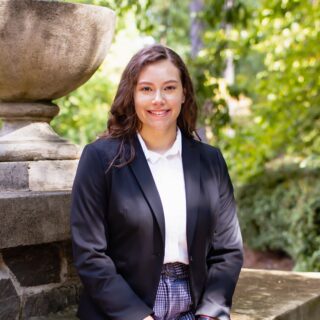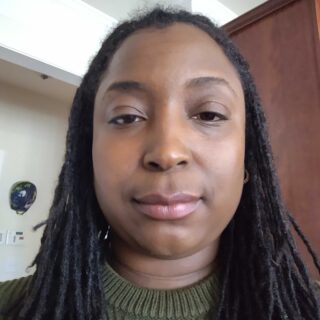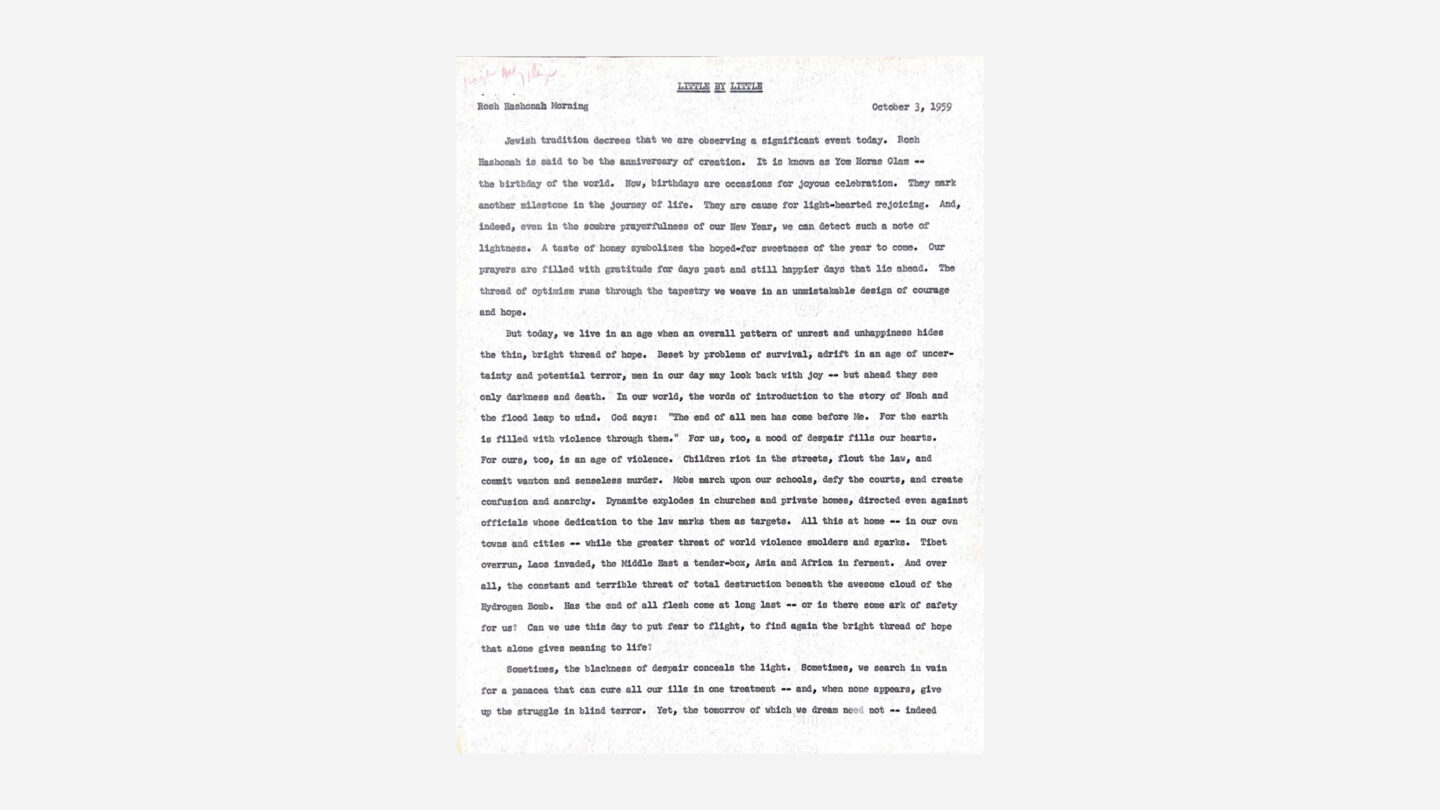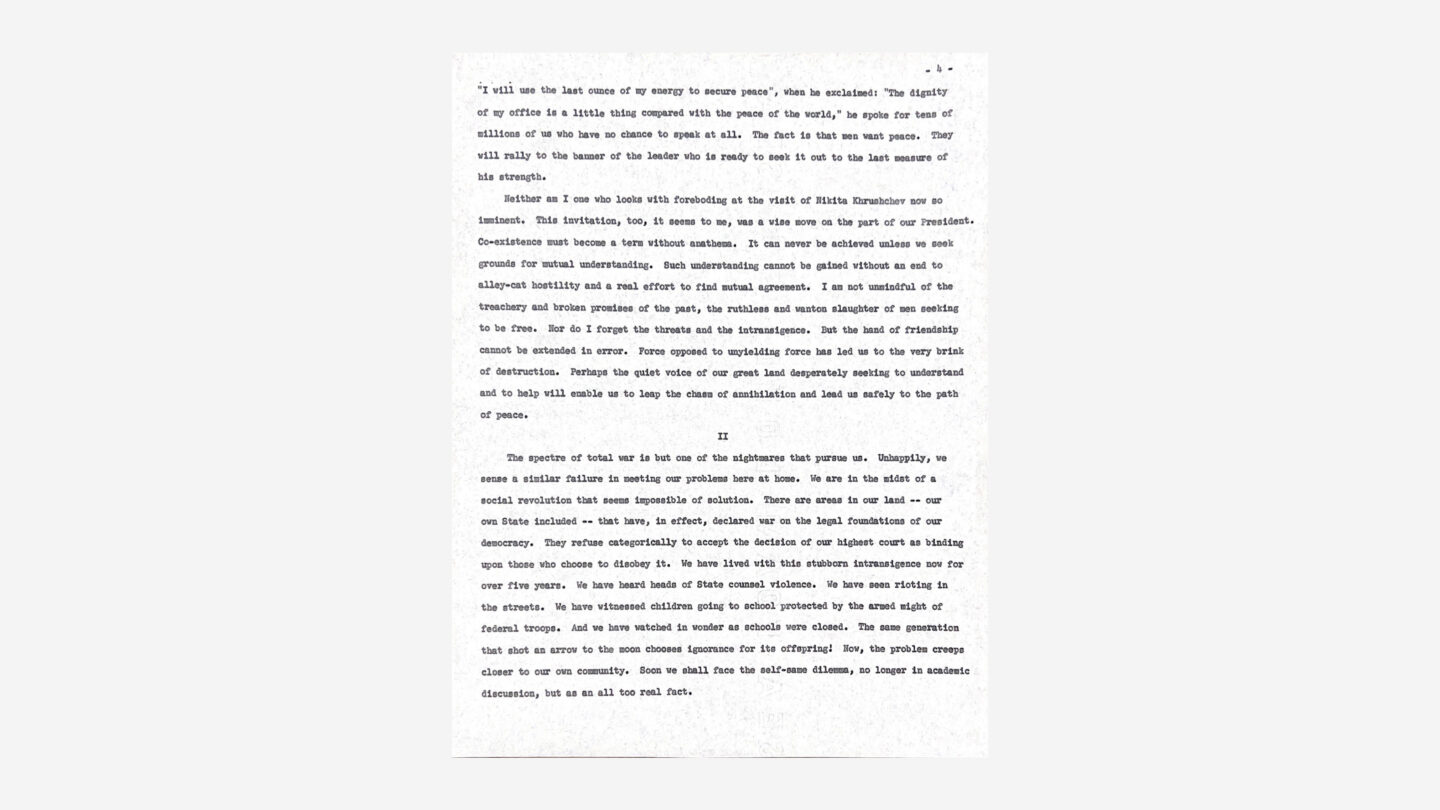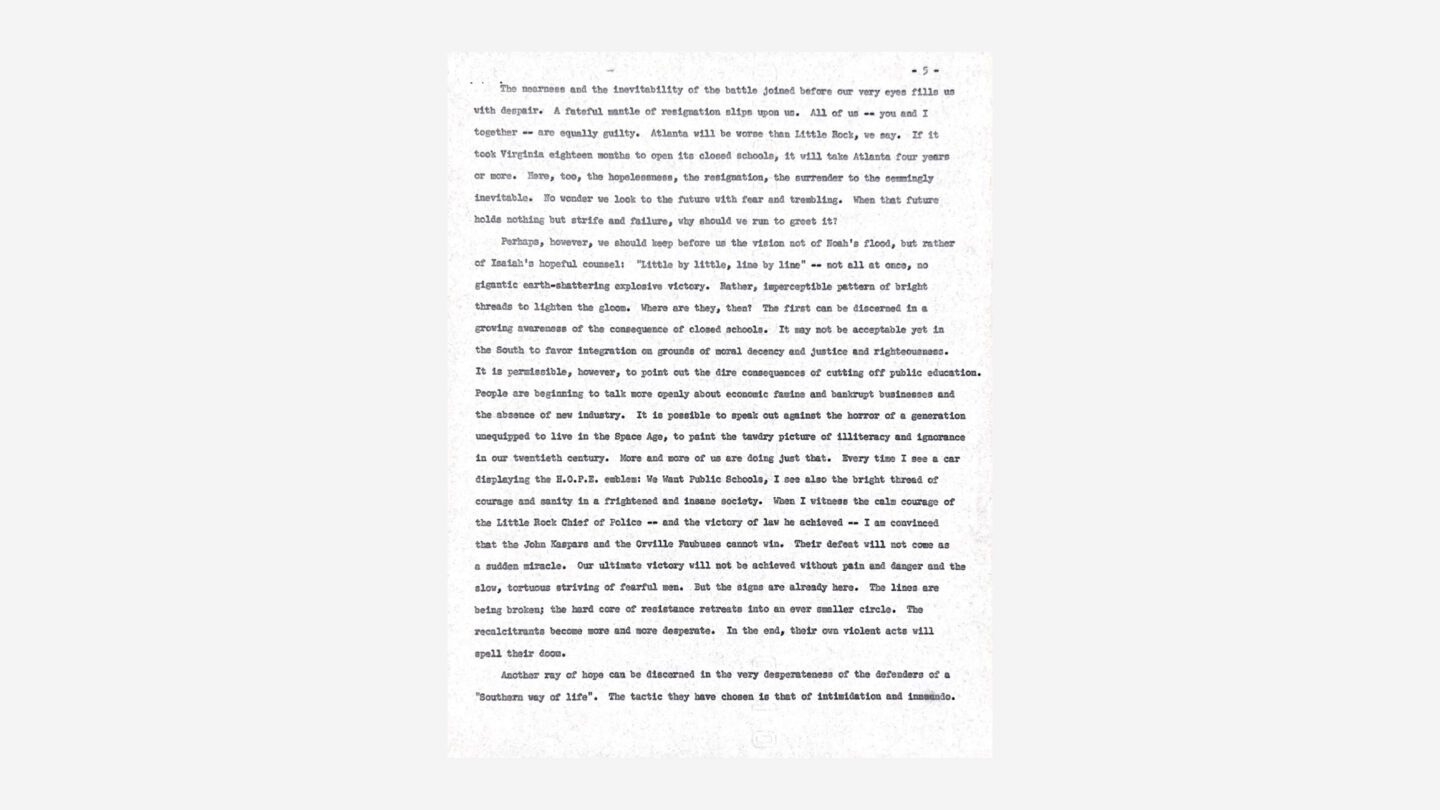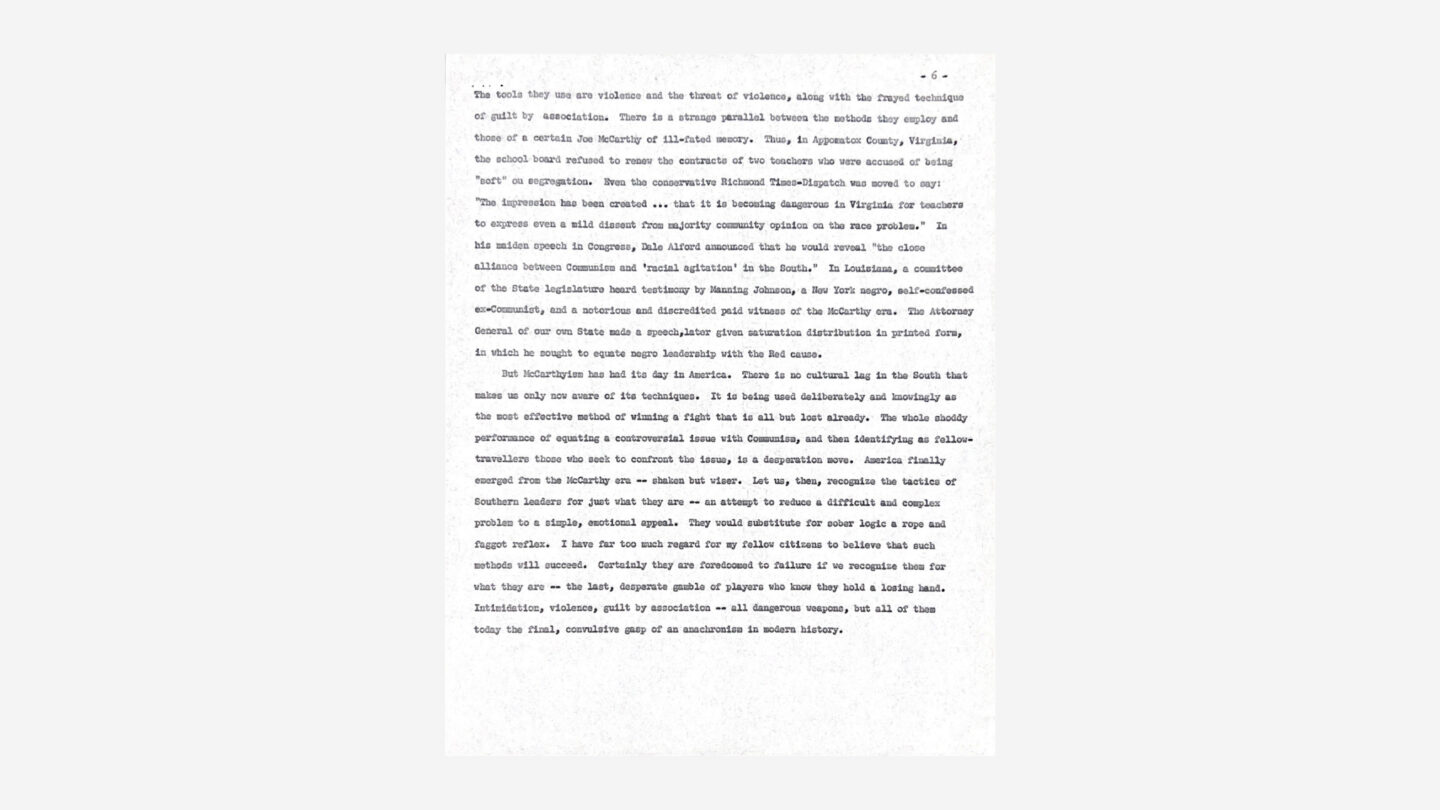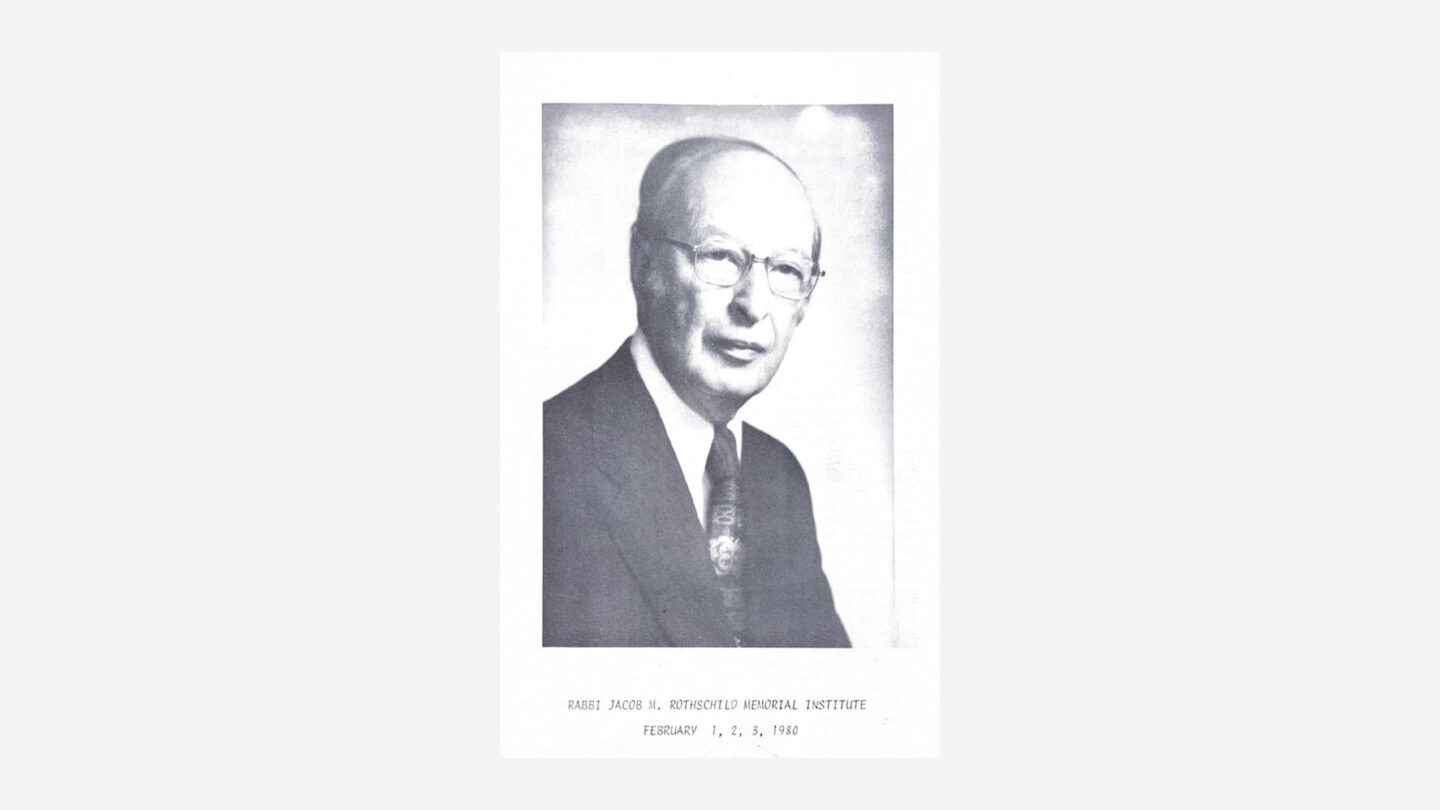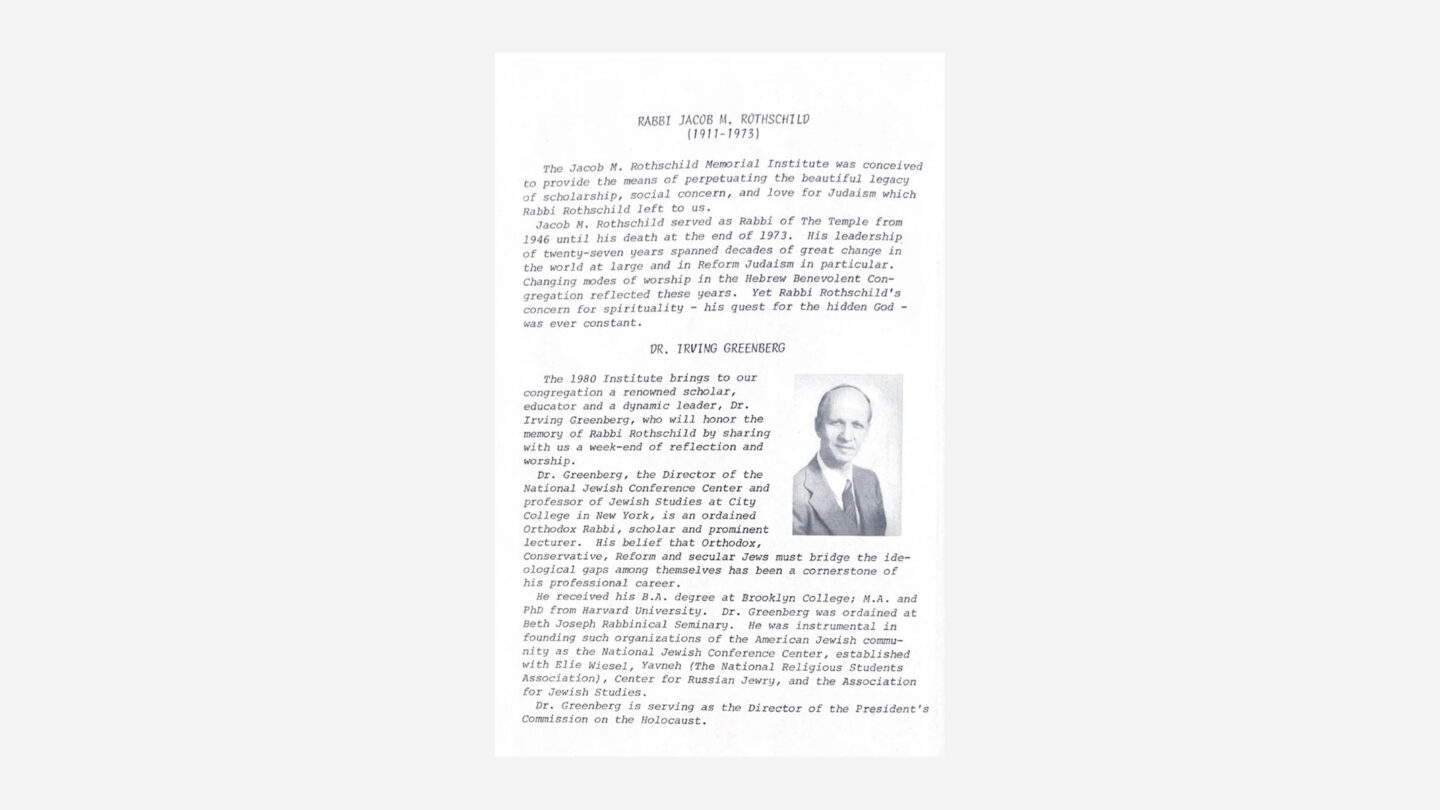From the principles of nonviolent resistance to the mass organization of Black communities across the South, Black churches and leaders became the foundation of the civil rights movement. Religious leaders of other faiths also existed within the interwoven community of Christian religious leaders fighting for integration. In Atlanta, Rabbi Jacob M. Rothschild was critical in mobilizing the Jewish community to support integration and align themselves with the civil rights movement.
Born in 1911, Rothschild grew up in Pittsburgh, Pennsylvania. After becoming an ordained rabbi in 1936 at Hebrew Union College in Cincinnati, Ohio, he took up the pulpit at Temple Emanuel in Iowa. He soon returned to Pittsburgh as the assistant rabbi at Rodef Shalom Congregation. He left the congregation to serve in the U.S. Army during World War II, spending four years as an army chaplain and serving in infantry combat at Guadalcanal.
Reformed Hebrew Benevolent Congregation, circa 1950. Frances Outlar, Frances Outlar Photographs, Kenan Research Center at Atlanta History Center
At the end of his service, Rothschild assumed the position of rabbi at the Hebrew Benevolent Congregation, today known as The Temple, here in Atlanta. After spending most of his life in the North, he was disturbed by racial segregation in the South. In 1947, he openly denounced segregation to his congregation. He continued to be a vocal advocate for change as a civil rights leader in Atlanta. Rothschild and his wife, Janice, became close friends with Dr. Martin Luther King Jr. and Coretta Scott King. In 1964, Rothschild helped organize a banquet in Atlanta honoring Dr. King when King won the Nobel Peace Prize.
Rabbi Jacob M. Rothschild presenting a commemorative bowl to Martin Luther King, Jr. at a banquet at the Ansley Hotel in Atlanta, Georgia, to honor King as the recipient of the Nobel Peace Prize. Atlanta History Photograph Collection, Kenan Research Center at Atlanta History Center
Rothschild leveraged his role as rabbi of Atlanta’s oldest Jewish institution to mobilize his congregation into action. His leadership marked a significant shift in The Temple’s engagement with social issues. For many years, The Temple’s congregation had avoided controversy due to antisemitism and the threat of violence, especially after the lynching of Jewish businessman Leo Frank in 1915. However, Rothschild confronted the scrutiny directly. Following the Brown v. Board of Education ruling, he became an outspoken advocate for school desegregation.
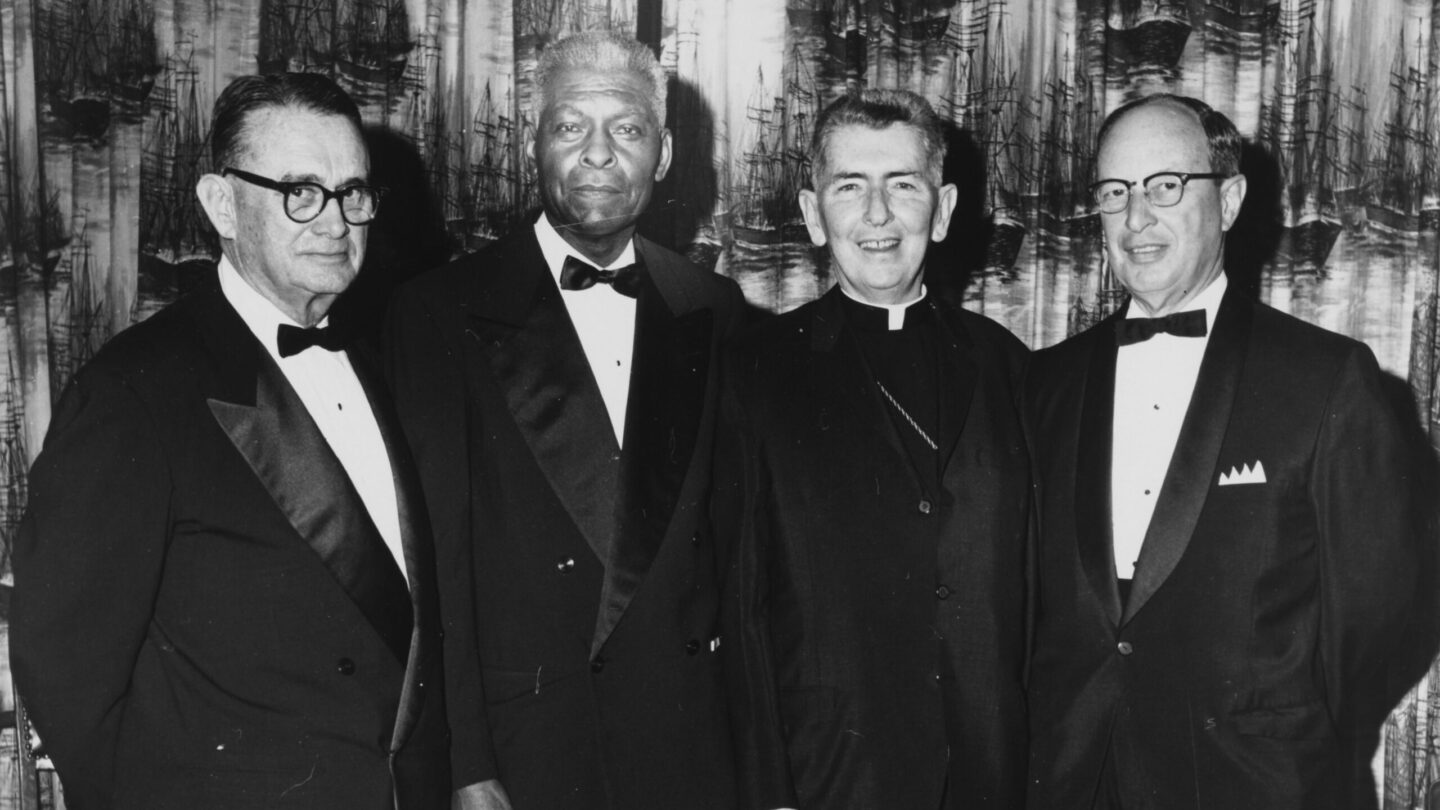
From left to right, journalist Ralph McGill, Morehouse College President Dr. Benjamin Mays, Archbishop Paul J. Hallinan, and Rabbi Jacob M. Rothschild during a banquet at the Ansley Hotel in Atlanta, Georgia, honoring Dr. Martin Luther King, Jr. (not pictured) as the recipient of the Nobel Peace Prize. Atlanta History Photograph Collection, Kenan Research Center at Atlanta History Center.
In response, white supremacists bombed The Temple on October 12, 1958. While no one was injured, the northern entrance of The Temple suffered significant damage. This event further motivated Rothschild to intensify his activism. For The Temple’s congregation, the bombing solidified a commitment to integration and nonviolent resistance to racial injustice. Many congregation members joined Organizations Assisting Schools in September (O.A.S.I.S.) and Help Our Public Education (H.O.P.E.), both instrumental in the integration of Atlanta schools in 1961.
Kenan Research Center at Atlanta History Center houses archives from The Temple, including some of Rothschild’s sermons and publications. In his sermon “Little by Little,” from October 3, 1959, Rothschild denounced resistance to the Brown v. Board of Education ruling.
Rothschild said, “There are areas in our land—our own state included—that have, in effect, declared war on the legal foundations of our democracy. They categorically refuse to accept the decision of our highest court as binding upon those who disobey it.”
He also remarked, “Every time I see a car displaying the H.O.P.E. emblem: We Want Public Schools, I also see the bright thread of courage and sanity in a frightened and insane society. When I witness the calm courage of the Little Rock Chief of Police—and the victory of law he achieved—I am convinced that the John Kaspars and the Orville Faubuses cannot win.”
During the civil rights movement, Rothschild formed close alliances with leaders of other faiths. He assisted Christian leaders in drafting the “Ministers’ Manifesto,” which discouraged citizens from engaging in massive resistance to integration. These same ministers rallied around The Temple following its bombing. Recognizing the importance of collaboration with Christian leaders, Rothschild established the Institute for Christian Clergy. This annual event promoted collaboration and partnership between The Temple and Atlanta’s Christian community. He made it a point to invite Black religious leaders to all interfaith events at The Temple.
Letter from Rabbi Jacob M. Rothschild announcing the 1962 Institute for the Christian Clergy. MSS 440 Hebrew Benevolent Congregation record, Kenan Research Center at Atlanta History Center
Rothschild continued his role as a civil rights leader until his death in 1973. After his death, The Temple established the Rabbi Jacob M. Rothschild Memorial Institute, which aimed to “provide the means of perpetuating the beautiful legacy of scholarship, social concern, and love for Judaism which Rabbi Rothschild left to us.” Today, The Temple operates the Rothschild Social Justice Institute, which “seeks to affect positive change on the local level and beyond concerning eleven broad societal issues of our time.”
Many prominent Atlanta and Georgia citizens attended Rothschild’s funeral, including Jimmy Carter, Sam Massell, Maynard Jackson, Dr. Martin Luther King Sr., and Coretta Scott King. Coretta Scott King described Rothschild as “a champion for interracial brotherhood and an uncompromising advocate for all Atlanta citizens.”


